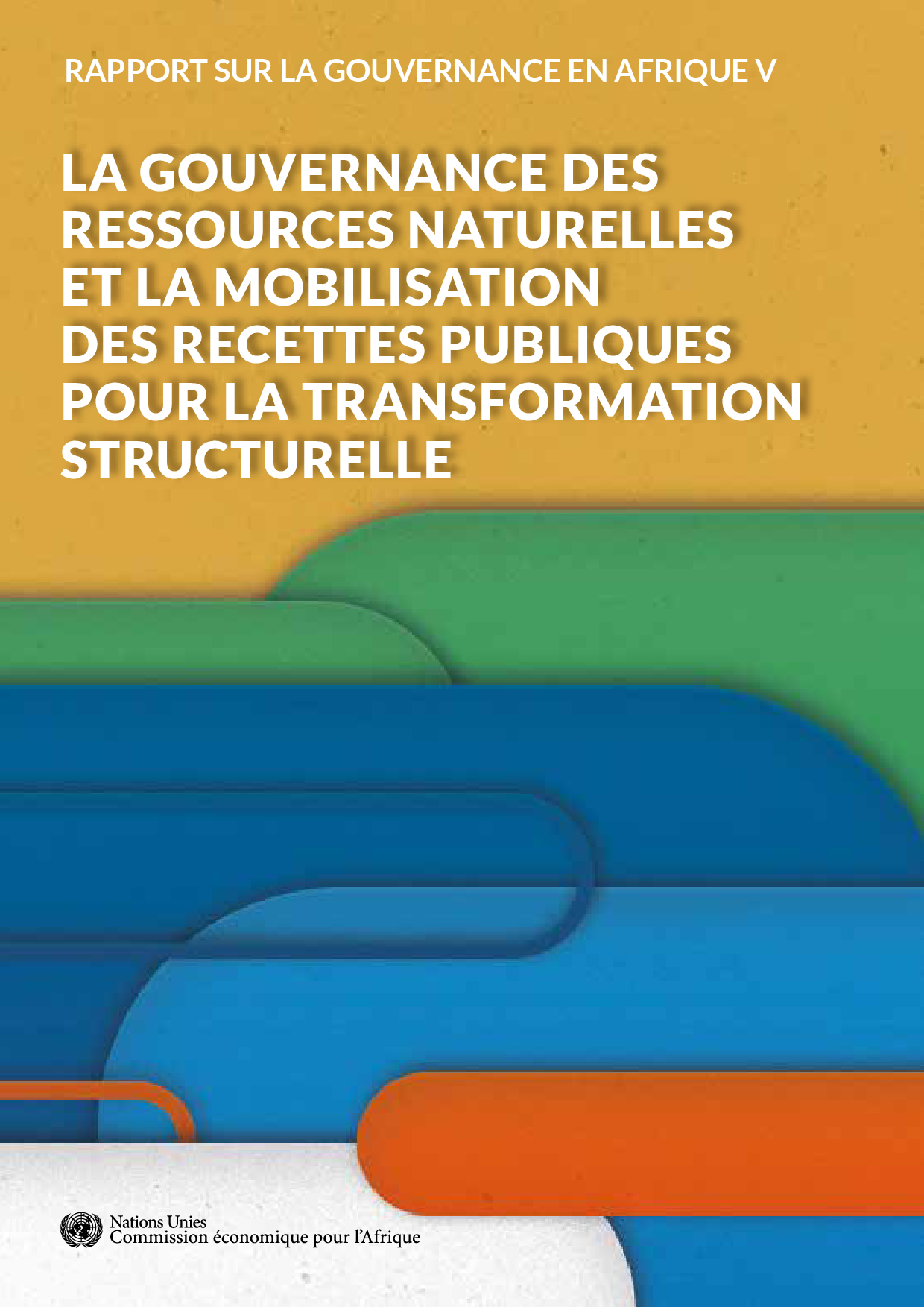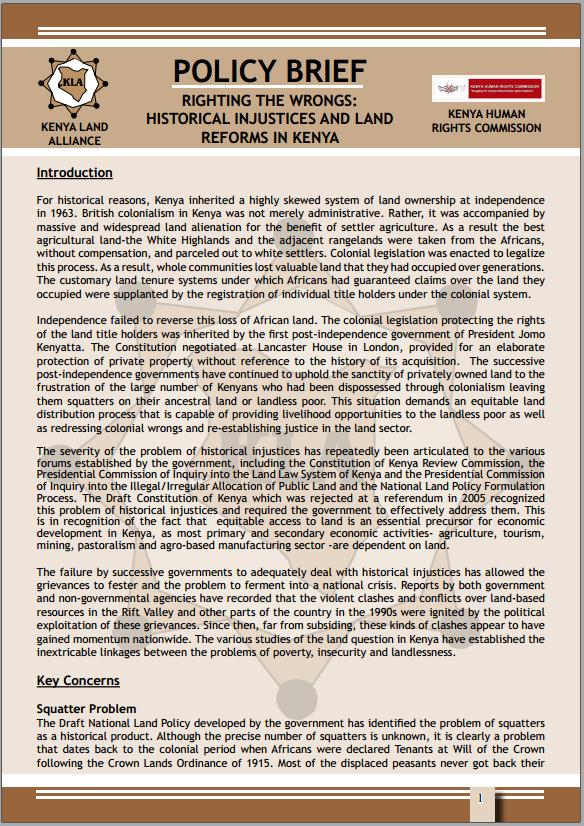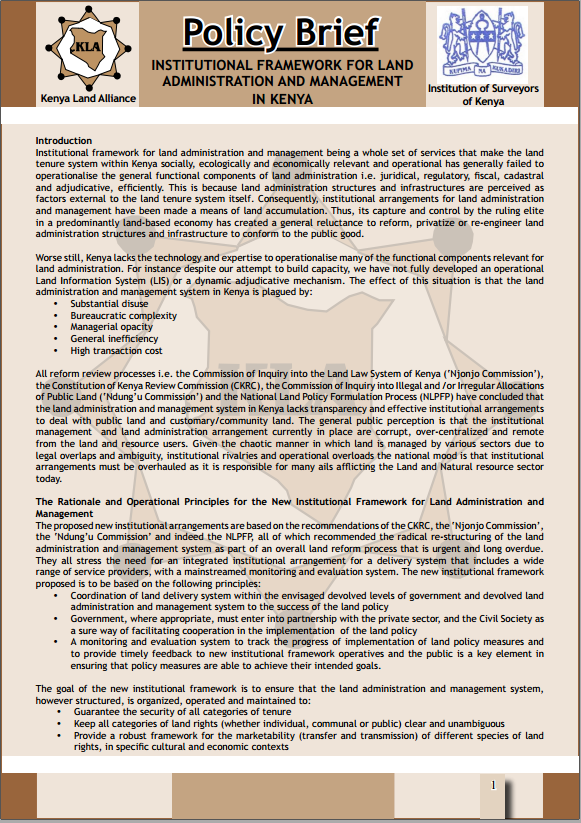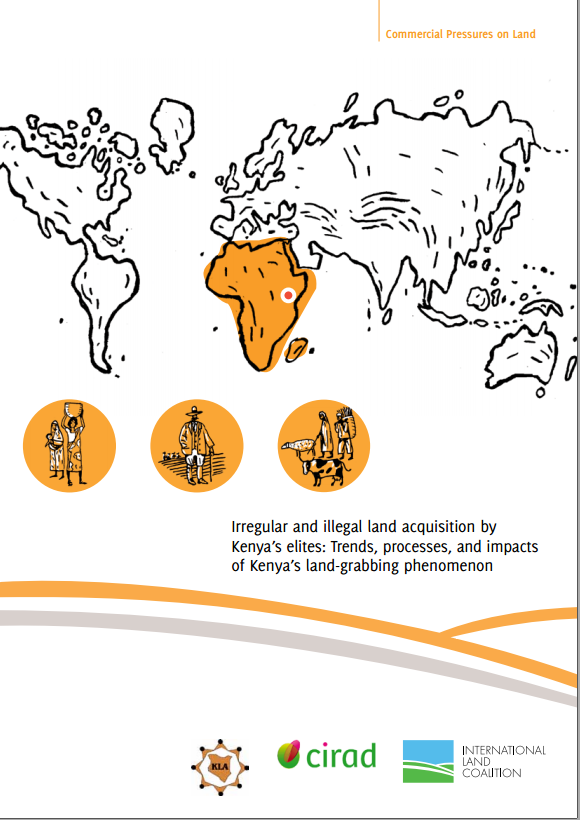Rapport sur la gouvernance en Afrique V - La gouvernance des ressources naturelles et la mobilisation des recettes publiques pour la transformation structurelle
Source: UNECA
Le Rapport sur la gouvernance en Afrique V examine ce qui est fait pour améliorer la gouvernance des abondantes ressources naturelles de l’Afrique et met l’accent sur le renforcement des institutions qui gèrent les ressources naturelles, pour une meilleure mobilisation des ressources intérieures et une plus grande participation des femmes à la diversification économique et la transformation structurelle des économies africaines.
UNECA: Rapport économique sur l’Afrique 2019
LA POLITIQUE BUDGÉTAIRE AU SERVICE DU FINANCEMENT DU DÉVELOPPEMENT DURABLE
Righting The Wrongs: Historical Injustices and Land Reforms in Kenya
For historical reasons, Kenya inherited a highly skewed system of land ownership at independence in 1963. British colonialism in Kenya was not merely administrative. Rather, it was accompanied by massive and widespread land alienation for the benefit of settler agriculture. As a result the best agricultural land-the White Highlands and the adjacent rangelands were taken from the Africans, without compensation, and parceled out to white settlers. Colonial legislation was enacted to legalize this process.
Institutional Framework for Land Administration and Management in Kenya
Institutional framework for land administration and management being a whole set of services that make the land tenure system within Kenya socially, ecologically and economically relevant and operational has generally failed to operationalise the general functional components of land administration i.e. juridical, regulatory, fiscal, cadastral and adjudicative, efficiently. This is because land administration structures and infrastructures are perceived as factors external to the land tenure system itself.
The National Land Policy in Kenya Addressing Historical Injustices
The Historical Injustices Issues Paper seeks to present the various historical land claims issues and perspective related to them and consequently proffer policy statements for their redress.
Civil Society Position on The Draft National Land Policy
The Civil Society commends the Ministry of Lands for spearheading the important process of developing the Draft National Policy, and affirms that land is central to the livelihoods of most Kenyans and as such its access, use, ownership, administration and distribution are of key national concern. Thus, having critically examined the Draft Policy we do hereby make our position on the way forward on the salient policy proposals of the Draft National Land Policy document.
DFID Support To Kenya Land Reform Process
The consultancy required a Project Completion Report of DFID’s support to the Kenya Land Alliance (KLA) and advice to DFID on possible future activities that would support pro poor land reform in Kenya. This final report has been prepared following the comments on the draft report by the Hon Kimunya, Minister of Lands and Settlement, and senior managers in the Ministry, the responsible DFID-Kenya officials and KLA’s Co-ordinator.
Irregular and illegal Land Acquisition by Kenya’s Elites: Trends, Processes, and Impacts of Kenya’s Land-Grabbing Phenomenon
The International Land Coalition (ILC) has commissioned this present report to analyze the illegal/irregular acquisition of land by Kenya’s elites to ascertain the types of land affected, the processes used to acquire land, and the profiles of the perpetrators, as well as to identify the victims and the impacts of land grabbing. The report is drawn largely from the Kenya Land Alliance (KLA)’s series “Unjust Enrichment: The Making of Land Grabbing Millionaires”,
The National Land Policy in Kenya Critical Public Land Issues and Policy Statements
The National Land Policy in Kenya: Critical Public Land Issues and Policy Statements is a guide to steer the debate and eventual formulation of a National Land Policy and legislative framework that will address issues of management and administration of public land in Kenya.
Kenya Land Issuance Disaggregated Data Analysis
This booklet reveals that women only got 103,043 titles representing 10.3 percent, while men got 865,095 titles representing 86.5 percent of the total. The glaring disparity is made clear when looked at against the actual land sizes and titled for women against men. The data sample shows that out of 10,129,704 hectares of land titled between 2013 and 2017 women got 163,253 hectares representing a paltry 1.62 while men got 9,903,304 hectares representing 97.76 percent.
KENYA LAND POLICY: ANALYSIS AND RECOMMENDATIONS
This analysis and recommendations stem from USAID/Kenya’s request for an assessment of Kenya’s draft National Land Policy (dNLP).4 It was conducted under the global task order: Property Rights and Resource Governance Program, a mechanism designed and supervised by USAID-EGAT’s Land Resources Management Team under the Office of Natural Resources Management.












